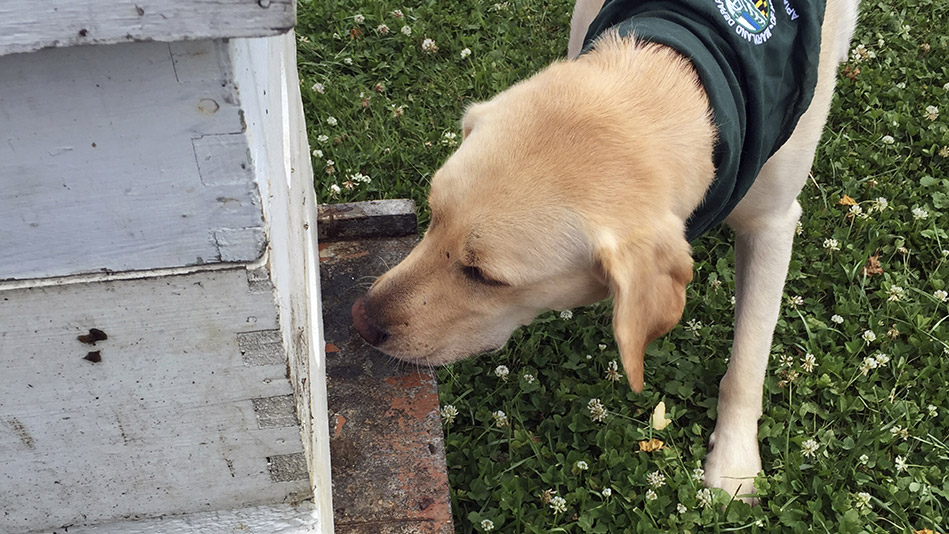The Incredible Way This Dog Is Helping Save Bees
One government employee is doing his part to protect at-risk bee colonies—in exchange for belly rubs.

Photo: Cybil Preston
When he's on the clock, Mack, a 3-year-old yellow Lab, is hot on the trail of one thing: a pungent odor that evokes rot and the inside of a chicken coop. The source of this funky scent is American foulbrood, a disease that can destroy beehive colonies. As Maryland's canine apiary inspector, Mack is responsible for identifying infected hives. "Dogs have greater accuracy than people," says the gifted sniffer's owner, Cybil Preston, Maryland's chief (human) apiarist. "On Mack's first day, he checked 545 beehives in less than two hours. That would've taken a human days, if not weeks!"
The work might seem minor, but Mack and Preston are on the front lines of securing their state's food supply. "Pollinators like honeybees help fertilize up to a third of everything we eat," says Preston. "We rely heavily on these little insects—and they rely on us to help keep them healthy." When Preston was promoted to her post in 2014, she was happy to continue the state's long tradition of hiring canine inspectors. Later that year, she met and rescued Mack. "He needed a home, and I needed a reliable partner," she says. "It was a win-win."
After eight months of training, Mack was ready to put his nose to the grindstone. "Before we go to work," says Preston, "we wrestle, throw a ball, play tug of war—Mack knows when it's time to go." But he's a different dog off duty: "At home, he's a couch potato."
The work might seem minor, but Mack and Preston are on the front lines of securing their state's food supply. "Pollinators like honeybees help fertilize up to a third of everything we eat," says Preston. "We rely heavily on these little insects—and they rely on us to help keep them healthy." When Preston was promoted to her post in 2014, she was happy to continue the state's long tradition of hiring canine inspectors. Later that year, she met and rescued Mack. "He needed a home, and I needed a reliable partner," she says. "It was a win-win."
After eight months of training, Mack was ready to put his nose to the grindstone. "Before we go to work," says Preston, "we wrestle, throw a ball, play tug of war—Mack knows when it's time to go." But he's a different dog off duty: "At home, he's a couch potato."



